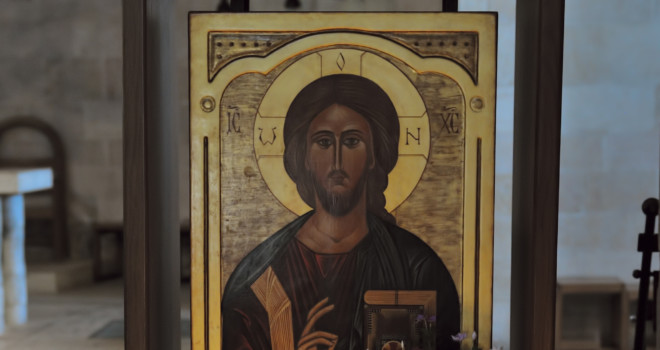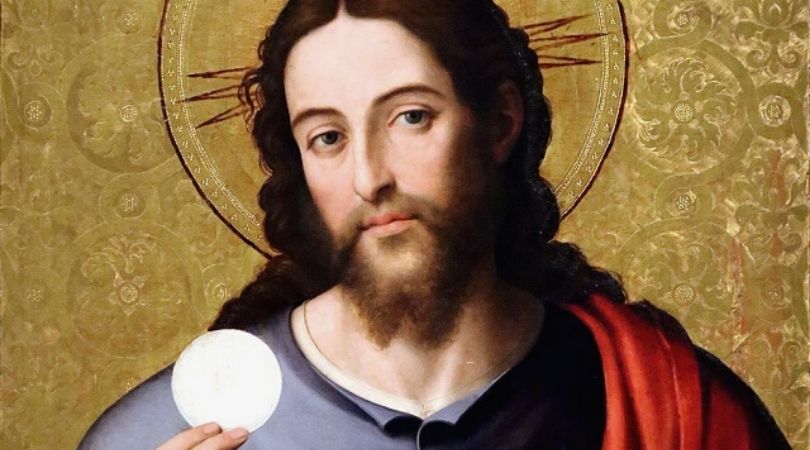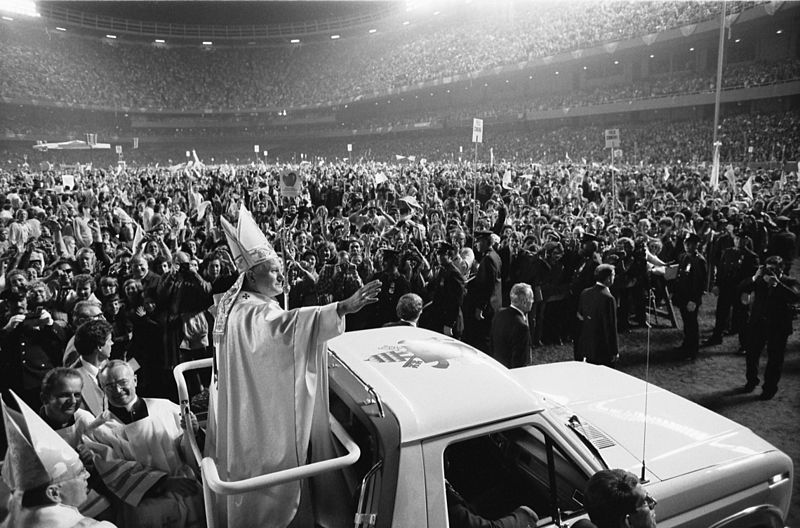Saint of the Day for July 17: Saint Francis Solano (March 10, 1549 – July 14, 1610)
July 17, 2017A Sterile France, a Muslim Europe
July 17, 2017
By Stephen Beale, Catholic Exchange, July 16, 2017
On its face, the traditional doctrine that God is pure act —actus purus— may seem strange.
First, in colloquial terms, we don’t usually think of God as being active when considered in Himself. Even in relation to creation, God’s power is such that He merely says the word and it is so. After all, God created the whole world merely by speaking and it was so, as Genesis tells us.
The modifier pure can throw us off too. How could God be purely act? In our world, nothing is pure act. I walk over to a chair, but there is more to me than the act of walking—a lot more.
The traditional doctrine cannot be understood apart from the classical distinction between potentiality and actuality in the philosophy of Aristotle. The contrast with potentiality helps us get to the meaning of actuality. Here the technical meaning is the same as the ordinary one: something that is potential is simply something that has not yet come to be.
To borrow one example, the wood of a tree is a potential table, chair, or house. Some kind of change or motion is necessary to bring the wood from a potential table to an actual table.
This explanation makes it clear why it would be wrong to speak of potentiality in the context of God. God is not potentially God. He is actually God. Put another way: one of the traditional teachings about God is that He is eternally unchanging. To change normally means that something is either corrupted and declines or is perfected. Wood rots and ceases to become a table. And, conversely, a loose pile of wood is perfected into a table.
Were God to experience either kind of change then He would not be God. If He declined, He would become less than what He is, no longer God. And conversely were we to say that He was perfected we would be claiming that He had not been previously perfect and therefore not God. Both would be heretical positions.
There are at least two other reasons God must be pure act.
First, everything in created reality passes from potentiality to actuality. In order to bring things from potentiality to actuality some act is necessary. The action of a carpenter is needed to craft potential wood into an actual table. But this means at the very beginning of things there must have been some ‘primal act’ to bring every other thing from potentiality to actuality, according to St. Thomas Aquinas. This should ring familiar: it’s essentially another way of restating the Unmoved Mover argument for the existence of God.
The second reason has to do with the infinity of God. This means that He comprehends “in Himself all the plentitude of perfection of all being,” according to Aquinas. There is nothing he could gain that He does not already have. Nor is there any place He could be moved to that He does not already fill, Aquinas says.
And it is precisely here that the immediate relevance of this doctrine becomes apparent.
One critic of the classical doctrine, an evangelical writer, says that for us potential is a positive thing. “For example, part of what makes us consider humans to have more value than (say) cattle is that humans have far more potential to do positive things than cattle do,” this writer says.
But this writer has it all backwards. It is precisely God as pure act that makes possible all potentiality for us. Remember, Aquinas’ point that some initial act is necessary to bring a thing from potentiality to actuality. For Aquinas God is that pure, initial, eternal act. God is the one who, as pure act, makes possible all possibility for us.
This doctrine also has ramifications for how we understand God’s intervention in our world. We all pray and yearn for God to ‘act’ in our lives in some way. When God does ‘act’ within His creation He is not undergoing any change in His being. He has not suddenly gone from being potentially merciful to being actually so. Rather, His ‘action’ in our world merely manifests His ongoing eternal actuality.
Of course, sometimes the sought-after intervention is not apparent. We might pray that someone is healed. Instead, they get sicker. We might pray that for help in making ends meet. Instead, our financial situation worsens.
The doctrine that God is pure act means, in a sense, that God has not stopped being loving, kind, compassionate, merciful or wise. He is always these things. He never goes from being potentially compassionate to being compassionate. He is always actually compassionate. So it is with His goodness, His awareness of our needs, and His knowledge of where our lives are headed.
This means that the best response to God’s apparent inaction in response to our prayers is to draw yet closer to Him in His very being—because He is already acting on our behalf. We may not know or understand why God’s actions are not manifest to us, but we can rest assured that God does know and understand.







